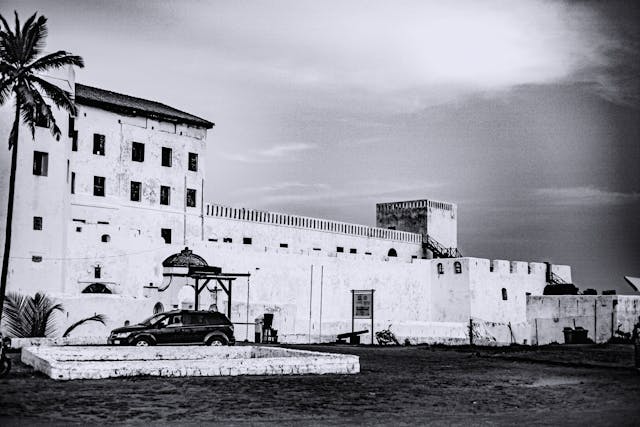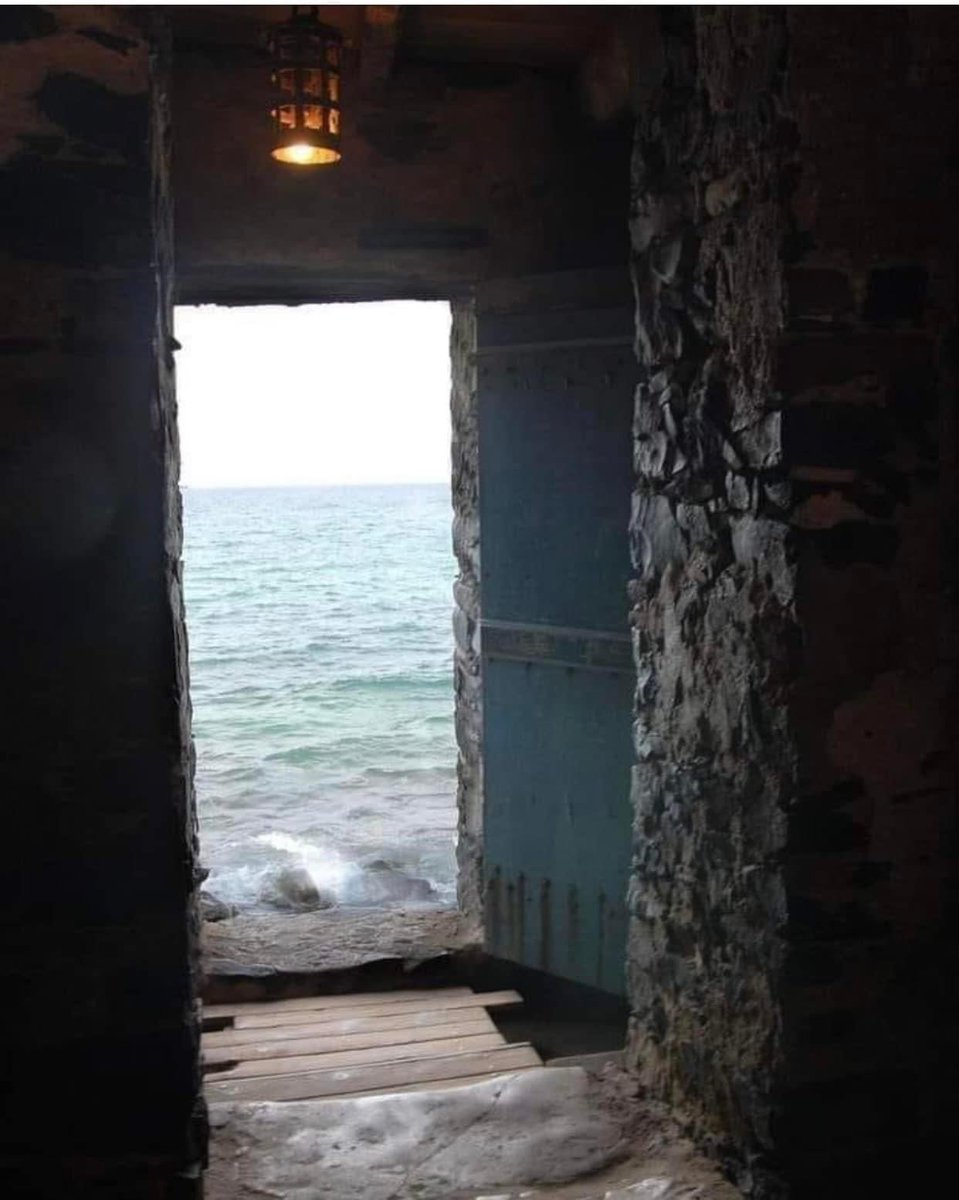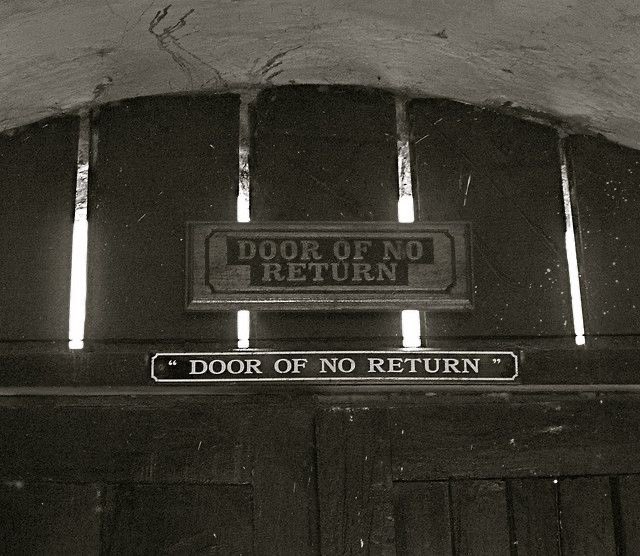Door of No Return: Complete Visitor's Guide to Cape Coast Castle, Ghana
Standing before the weathered white walls of Cape Coast Castle, people usually feel the weight of history press against my chest. The salty breeze carried stories of centuries past, as waves crashed against the same shores that witnessed humanity's darkest chapter. The Door of No Return is an emotional tourist destination – it's a powerful memorial to millions of lives forever changed by the trans-Atlantic slave trade.

Location: Central Region, Ghana
Opening Hours: 9:00 AM - 4:30 PM daily
Guided Tour Duration: 1.5 - 2 hours
Admission: $10 USD for international visitors, 5 GHS for Ghanaian residents
Best Time to Visit: Early morning or late afternoon to avoid peak heat
Photography: Permitted in most areas, restricted in certain memorial spaces
Opening Hours: 9:00 AM - 4:30 PM daily
Guided Tour Duration: 1.5 - 2 hours
Admission: $10 USD for international visitors, 5 GHS for Ghanaian residents
Best Time to Visit: Early morning or late afternoon to avoid peak heat
Photography: Permitted in most areas, restricted in certain memorial spaces
The castle's pristine white exterior belies its dark history. I arrived early, just as the morning sun began to warm the ancient stones. Pro tip: book a guided tour in advance – the stories and context provided by local historians are invaluable. My guide, Kwame, had been sharing these histories for over two decades, and his deep connection to the castle's story was immediately evident.

Photo Credit: Google
Practical Tips for Visitors
Before You Go
Wear comfortable, breathable clothing
Bring water – the Ghana heat is intense
Wear good walking shoes
Bring a camera (but use it respectfully)
Consider visiting early morning or late afternoon to avoid peak heat
Book a guide in advance during peak season
Emotional Preparation
Be prepared for an emotionally challenging experience
Take breaks if needed – there are resting areas
Consider reading about the castle's history beforehand
Remember it's okay to feel overwhelmed
What to Wear and How to Culturally Prepare
1. Dress modestly out of respect
2. Follow photography guidelines
3. Maintain appropriate behavior – this is both a tourist site and a sacred memorial
4. Listen more than you speak
Respect other visitors' emotional responses
Beyond the Castle
Local Context
After your visit, take time to explore Cape Coast town. Local restaurants serve traditional Ghanaian dishes, and the fishing harbor offers a glimpse into contemporary life. Consider visiting:
Cape Coast fishing harbor
Local markets
Nearby beaches
Traditional restaurants
Where to Stay
Beachfront hotels: Ocean View Resort, Cape Coast Beach Hotel
Mid-range: Hans Cottage Botel
Budget ($): Student hostels and guesthouses near the castle
Practical Tips for Visitors
Before You Go
Wear comfortable, breathable clothing
Bring water – the Ghana heat is intense
Wear good walking shoes
Bring a camera (but use it respectfully)
Consider visiting early morning or late afternoon to avoid peak heat
Book a guide in advance during peak season
Emotional Preparation
Be prepared for an emotionally challenging experience
Take breaks if needed – there are resting areas
Consider reading about the castle's history beforehand
Remember it's okay to feel overwhelmed
What to Wear and How to Culturally Prepare
1. Dress modestly out of respect
2. Follow photography guidelines
3. Maintain appropriate behavior – this is both a tourist site and a sacred memorial
4. Listen more than you speak
Respect other visitors' emotional responses
Beyond the Castle
Local Context
After your visit, take time to explore Cape Coast town. Local restaurants serve traditional Ghanaian dishes, and the fishing harbor offers a glimpse into contemporary life. Consider visiting:
Cape Coast fishing harbor
Local markets
Nearby beaches
Traditional restaurants
Where to Stay
Beachfront hotels: Ocean View Resort, Cape Coast Beach Hotel
Mid-range: Hans Cottage Botel
Budget ($): Student hostels and guesthouses near the castle
Nothing could have prepared you for descending into the male dungeon. The temperature dropped noticeably as we stepped down worn stone stairs. In near-total darkness, Kwame explained how hundreds of men were cramped into this space, sometimes for months, before their fatal journey across the Atlantic.
The air feels thick here, even today. A small window cast minimal light – the same window that, centuries ago, provided the only ventilation for hundreds of imprisoned souls. I stood in silence, letting the magnitude of what happened here sink in.
The air feels thick here, even today. A small window cast minimal light – the same window that, centuries ago, provided the only ventilation for hundreds of imprisoned souls. I stood in silence, letting the magnitude of what happened here sink in.
The women's dungeons tell an equally haunting story. Here, Kwame spoke softer, sharing the particular horrors women endured. The "conditioning room" – where people were branded and examined like cattle – left me speechless. Some visitors needed to step outside at this point. It's okay to take breaks; the emotional impact is profound.
The infamous "Door of No Return" marks the final point of departure from Africa for millions. It's smaller than you might expect – a narrow archway leading to the ocean. Standing here, watching waves crash against the shore, creates an indescribable connection to those who passed through centuries ago.
The infamous "Door of No Return" marks the final point of departure from Africa for millions. It's smaller than you might expect – a narrow archway leading to the ocean. Standing here, watching waves crash against the shore, creates an indescribable connection to those who passed through centuries ago.

Photo Credit: Google
Visiting Cape Coast Castle is more than tourism – it's a pilgrimage of remembrance. The experience will stay with you long after you've left its walls. As I watched the sunset from the castle ramparts on my final evening, I reflected on how crucial it is to preserve these spaces and their stories for future generations.
Remember, every visitor becomes part of the continuing story of Cape Coast Castle. We carry the responsibility to share these histories respectfully and ensure they're never forgotten.
Visiting Cape Coast Castle is more than tourism – it's a pilgrimage of remembrance. The experience will stay with you long after you've left its walls. As I watched the sunset from the castle ramparts on my final evening, I reflected on how crucial it is to preserve these spaces and their stories for future generations.
Remember, every visitor becomes part of the continuing story of Cape Coast Castle. We carry the responsibility to share these histories respectfully and ensure they're never forgotten.

